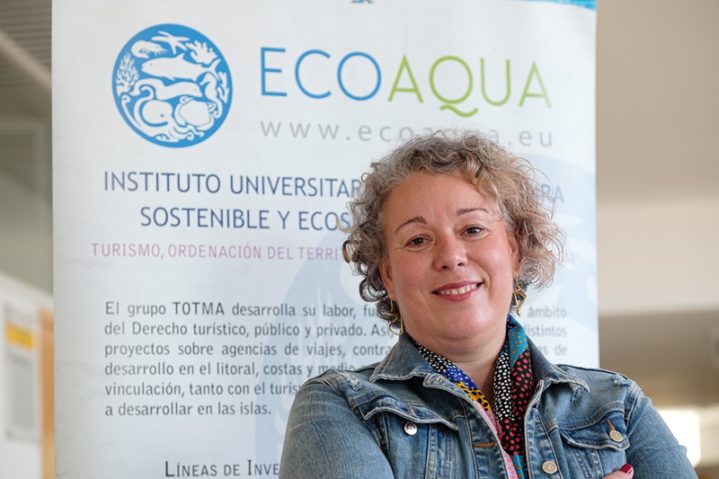The Equality Law was born 15 years ago to put an end to gender differences in the world of work through collective bargaining, but it has not yet had the desired effect as it does not include the requirement to be applied in small and médium entreprises (SMEs), 99% of the companies in this country. This is what researcher Carmen Grau, from the TOTMA group of the University Institute ECOAQUA of the ULPGC, explains in this column on the Mujer Emprendedora portal.
The approval of the Organic Law for the effective equality of women and men (LOI), was an indisputable legislative milestone almost fifteen years ago (2007-2021), as making non-discrimination based on gender in work organisations an essential pillar of business management.
The incorporation of gender equality in companies then became a mandatory subject of collective bargaining, something that was done through the star measure of this law: equality plans, which were born with a very flexible skeleton in order to be able, through negotiation between workers and company, adopt real measures that would correct imbalances detected in each company.
However, fifteen years later, the balance of this measure is not as expected. The Equality Plans approved so far could have done much more than they have done. Why? Because they have become just another formality, carried out in the form of a "cut and paste", something that already happens in a similar way with occupational risk prevention plans. In short, ineffective Equality Plans whose only objective is to comply with a merely documentary legal obligation.
There is no longer any doubt that in recent decades there has been a marked increase in women's participation in the labour market, but this is still a pending issue: women represent a very high percentage of the labour force in certain sectors such as health, education or retail trade, and men occupy most of the top management positions and manual jobs.
This is precisely the reason why equality plans were born at the time. The problem is that, in practice, the law only applies to a very small proportion of Spanish companies: the LOI only required equality plans for companies with more than 250 employees. In 2022, the requirement will be extended to companies with more than 50 employees. A step forward, but still insufficient and naive: according to official data (DIRCE, INE), in 2020, of the total number of national companies (3.404.428), only 0.77% (26.369) will have more than 50 employees.
The bulk of companies on which this legal obligation should be imposed are SMEs, which represent 99% of our business. This will undoubtedly require greater technical and promotional support from the public authorities to encourage its effective negotiated implementation, but it is the only way to generalise this legal obligation, the ultimate aim of which is to make progress towards real equality in companies.
To continue to think of this type of legal obligation as imposing a heavy liability on companies is to perpetuate the idea that the fundamental right to equality and non-discrimination is a burden and, far from normalising content referring to the promotion of equality as negotiable content, it is to persevere in the line of considering it a "luxury" only possible in times of economic expansion.
It is time to act, it is our inescapable social obligation to comply with the mandate of real equality and that both employers' and trade union representatives are capable of approving real, realistic, adapted and appropriate equality plans. The 21st century is the century of women, as the United Nations and Europe have declared, and the winds are blowing in favour of this historic demand, which is nothing more than a manifestation of the equality on which our modern democracies are based.
* Carmen Grau Pineda is a member of the Research Group on Tourism, Spatial Planning and Environment (TOTMA) of the University Institute of Sustainable Aquaculture and Marine Ecosystems (ECOAQUA) of the University of Las Palmas de Gran Canaria, where she teaches Labour and Social Security Law as a lecturer in the Faculty of Legal Sciences. She is also a member of the Permanent Observatory of Domestic Service at the University Carlos III of Madrid. Concerned and engaged in gender and inequality issues, she received in 2020 the 8 March Award of the Spanish Association of Labour Law and Social Security for her work on "Los enemigos de los planes de igualdad", published in the specialised journal Femeris. She has recently published a monograph on La brecha de las pensiones en España (Bomarzo, 2020), and has also collaborated in a collective work directed by Margarita Ramos Quintana on La nueva Estrategia Europea para la Igualdad de Género 2020-2025.


